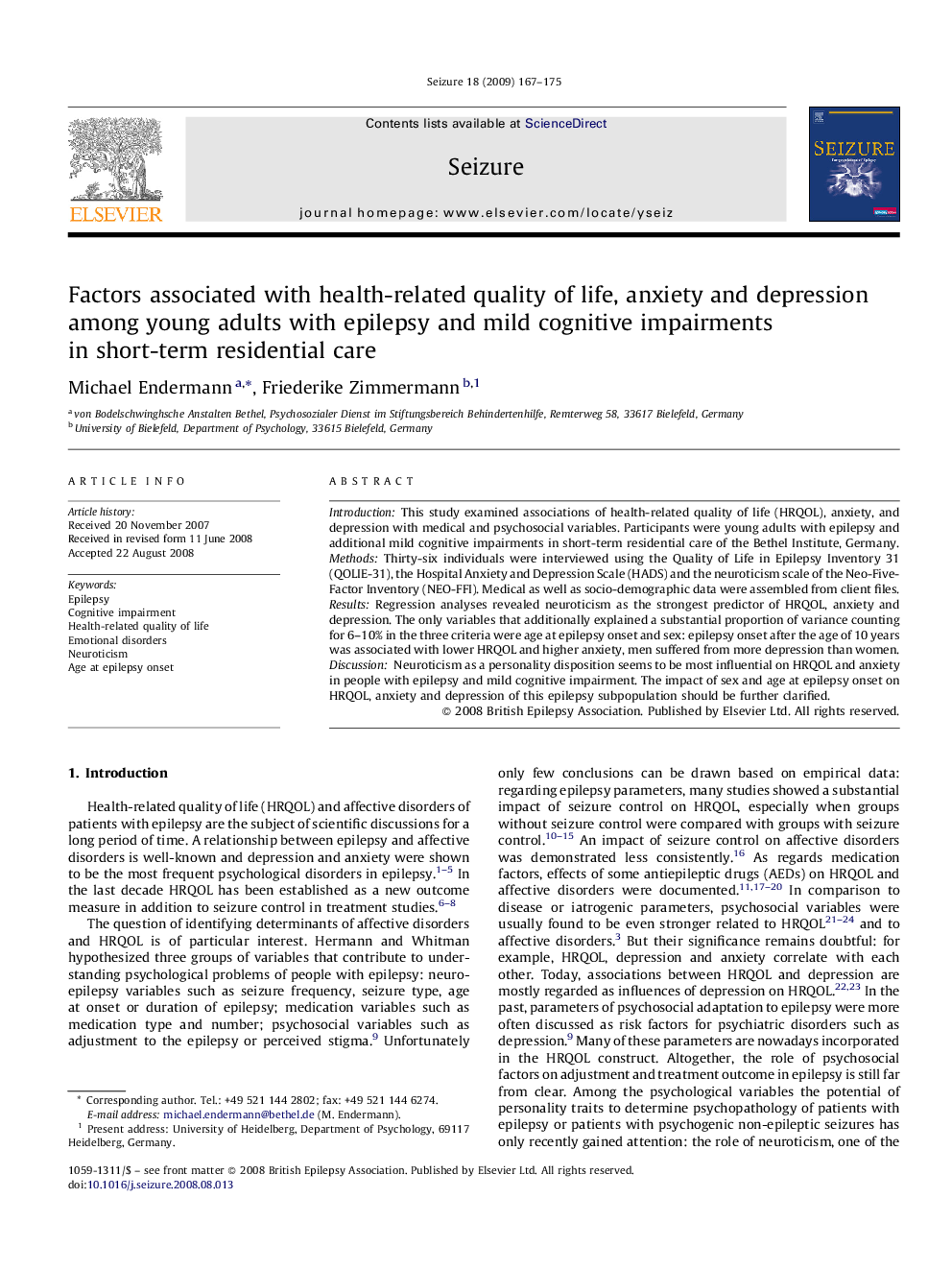| Article ID | Journal | Published Year | Pages | File Type |
|---|---|---|---|---|
| 341124 | Seizure | 2009 | 9 Pages |
IntroductionThis study examined associations of health-related quality of life (HRQOL), anxiety, and depression with medical and psychosocial variables. Participants were young adults with epilepsy and additional mild cognitive impairments in short-term residential care of the Bethel Institute, Germany.MethodsThirty-six individuals were interviewed using the Quality of Life in Epilepsy Inventory 31 (QOLIE-31), the Hospital Anxiety and Depression Scale (HADS) and the neuroticism scale of the Neo-Five-Factor Inventory (NEO-FFI). Medical as well as socio-demographic data were assembled from client files.ResultsRegression analyses revealed neuroticism as the strongest predictor of HRQOL, anxiety and depression. The only variables that additionally explained a substantial proportion of variance counting for 6–10% in the three criteria were age at epilepsy onset and sex: epilepsy onset after the age of 10 years was associated with lower HRQOL and higher anxiety, men suffered from more depression than women.DiscussionNeuroticism as a personality disposition seems to be most influential on HRQOL and anxiety in people with epilepsy and mild cognitive impairment. The impact of sex and age at epilepsy onset on HRQOL, anxiety and depression of this epilepsy subpopulation should be further clarified.
